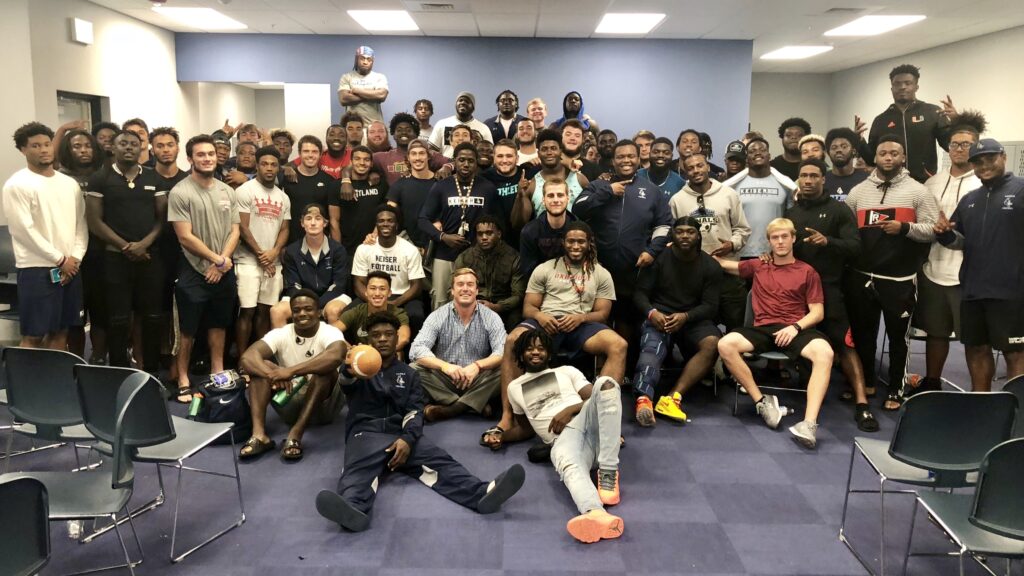Posts by Claude Kershner IV
Crafting Vision in Organizational Change for Operationally Inclined Leaders
Crafting a vision isn’t just a task, it’s a transformative process that guides organizations towards a purposeful future. Even leaders focused on daily operations can embrace this challenging but rewarding aspect of leadership. Dive into this article to uncover personal insights, practical tips, and a unique perspective on creating a lasting impact as a leader.
Read MoreThe Manager vs. Entrepreneur
Transitioning to a manager poses a significant challenge for entrepreneurs. Balancing creativity with structured organization is key. By empowering our team and implementing efficient systems, we ensure sustainable growth.
Read MoreDelight and Amaze Customers: Aligning Operations with Customer Service Excellence
By designing operations around the customer and giving employees the tools and authority to serve customers, organizations can create a culture of exceptional service. However, misalignment in operations and processes can be detrimental to the customer experience. It’s important to ensure that all aspects of the organization, including goals, hiring, training, empowerment, and leadership, are aligned with the customer service vision.
Read MoreChasing the Expert is a Mistake: The Power of Collaborative Learning
Shared thinking is a powerful tool that can lead to faster, more mature, and more creative thinking, resulting in better outcomes. Great ideas are often the result of collaboration and building on each other’s good ideas. As a Romanian born artist once said, “Creativity is to see what everybody has seen and to think what nobody has thought,” and shared thinking can help individuals tap into that creativity and generate new ideas and solutions that may not have been possible through solo thinking.
Read MorePersonality Traits That Set Creative Leaders Apart From Bureaucratic Non-Creatives in Problem Solving
Arthur D. Levinson, the chairman of Apple Inc. and former chairman and CEO of Genentech, advises that the key to creating an innovative environment is to hire innovative people, listen to their needs, and implement their ideas.
Read MoreFunding Your Venture: The Importance of Accounting, Mentorship, and Entrepreneurship Education
The promise of securing funding from investors or commercial lenders can be enticing. Yet, it’s important to be aware of the many misconceptions and common myths that come along with it. Investing in mentorship and education, understanding the language of business and finance, and exploring alternative funding methods are all essential to building a successful business.
Read MoreConnecting With Others: The Importance of Authentic and Humble Communication in Leadership
Research supports the idea that leaders who admit their mistakes and vulnerabilities are viewed as more authentic and trustworthy. According to a study published in the Journal of Business and Psychology, employees perceived leaders who were open and transparent about their weaknesses and mistakes as more trustworthy and effective than leaders who were defensive or tried to hide their imperfections.
Read MoreMaximizing Business Success: The Importance of Key Partnerships and Key Activities in Your Business Model
Key partnerships and activities provide businesses the tools to access vital resources, gain a competitive advantage, and ultimately create more customer value. However, identifying and leveraging these components can be a challenging process.
Read MoreEmpowering Commercial Loan Specialists: The Importance of Understanding the Business Model Canvas and Lean Startup Methodology
Commercial loan specialists must understand and utilize the Business Model Canvas and Lean Startup Methodology. By doing so, they can stay competitive, make informed funding decisions, reduce the risk of failure, and support the growth of innovative businesses.
Read MoreThe Power of the Human Voice: How Phone Conversations Strengthen Relationships in an Era of Digital Communication
Phone conversations are considered to be more effective than text message conversations in several ways. Firstly, phone conversations allow for real-time communication. When having a conversation over the phone, both parties can listen and respond to each other in real-time, making the interaction more immediate and spontaneous. This is particularly important for personal or emotional conversations where timing is crucial.
Read More









